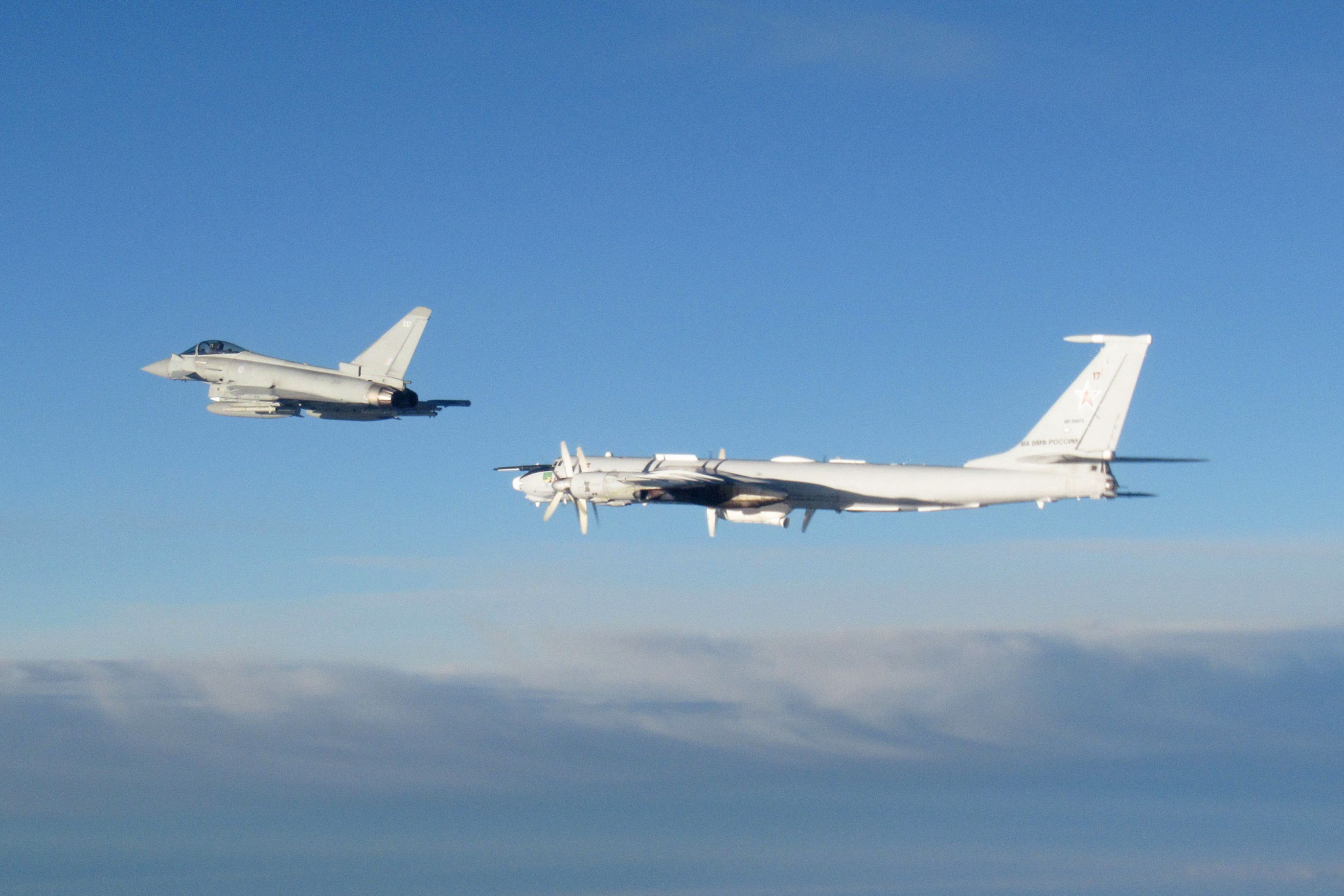RAF jets scrambled to intercept Russian bombers north of Shetland Islands
Armed forces minister James Heappey said crews at RAF Lossiemouth were ready to ‘take action at a moment’s notice’.

Your support helps us to tell the story
From reproductive rights to climate change to Big Tech, The Independent is on the ground when the story is developing. Whether it's investigating the financials of Elon Musk's pro-Trump PAC or producing our latest documentary, 'The A Word', which shines a light on the American women fighting for reproductive rights, we know how important it is to parse out the facts from the messaging.
At such a critical moment in US history, we need reporters on the ground. Your donation allows us to keep sending journalists to speak to both sides of the story.
The Independent is trusted by Americans across the entire political spectrum. And unlike many other quality news outlets, we choose not to lock Americans out of our reporting and analysis with paywalls. We believe quality journalism should be available to everyone, paid for by those who can afford it.
Your support makes all the difference.The RAF has scrambled jets to intercept two Russian bombers travelling north of the Shetland Islands.
The Russian Tu-142 Bear-F and Tu-142 Bear-J maritime patrol aircraft, used for reconnaissance and anti-submarine warfare, were monitored by RAF Typhoons in international air space as they passed north of the UK.
Armed forces minister James Heappey said: “RAF crews at Lossiemouth maintain a constant watch over UK air space and are always ready to take action at a moment’s notice to keep our country safe.
“Pilots launched in their Typhoon jets to intercept two Russian long-range bombers this morning, monitoring them as they passed north of the Shetland Islands, ready to counter any potential threat to UK territory.”
A Voyager tanker was also scrambled and remained airborne for the duration of the mission to offer air-to-air refuelling, according to the Ministry of Defence.
The presence of the Voyager meant the Typhoons could remain in the air for the extended period necessary to complete their mission.
Fighter jets are constantly available at Lossiemouth, one of the RAF’s two quick reaction alert stations, to respond to threats in UK air space.
RAF pilots from Lossiemouth in Moray recently completed a four-month deployment to lead Nato’s air policing mission in Estonia, where more than 50 air intercepts of this kind were carried out.
The lead RAF Typhoon pilot in Monday’s intercept, whose name was not given by the MoD, said the “adrenaline kicked in” when the alarm call came “in the early hours of the morning”.
Russian military aircraft entering the UK Flight Information Region, the UK’s controlled zone of international air space, can pose a hazard to other aircraft, the MoD said.
An official from the ministry said such Russian aircraft often do not talk to air traffic control and refuse to “squawk” – a broadcast code used by pilots to ensure they are visible to other air users and air traffic controllers on the ground.